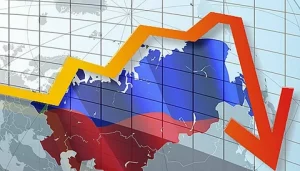
Russia’s economic sanctions have significantly disrupted global supply chains. These sanctions have created considerable obstacles for international trade, leading to delays and inefficiencies in the movement of goods across borders. Companies that previously relied on Russian markets and suppliers are now forced to seek alternatives, which often results in higher costs and longer lead times. The sanctions have not only affected the direct trade with Russia but have also had a cascading effect on various industries globally, as businesses scramble to realign their supply chains to mitigate the impact.
Furthermore, Russia’s economic sanctions have led to increased trade barriers. These barriers manifest in the form of tariffs, import restrictions, and regulatory hurdles that complicate the trade process. The additional compliance requirements and the need to navigate through a more complex trade environment have escalated operational costs for businesses. The increased trade barriers have also fostered a sense of uncertainty in the global market, as companies are unsure about the future stability and predictability of their trade relationships.
Impact on Global Supply Chains

The sanctions imposed on Russia have disrupted international supply chain operations. The immediate effect has been the interruption of the flow of goods, particularly those that are essential for various manufacturing processes. Industries that depend on raw materials and components from Russia have faced significant challenges in maintaining their production schedules. The disruption has forced businesses to find new suppliers, often at a higher cost and with longer delivery times, thereby complicating their supply chain logistics.
Additionally, Russia’s economic sanctions have led to increased global trade costs. The need to reroute shipments, coupled with the higher prices of alternative sources, has driven up the overall expenses associated with international trade. Transportation costs have surged due to longer shipping routes and the necessity to use less efficient logistics networks. These increased costs are often passed down the supply chain, ultimately affecting the end consumers who face higher prices for goods and services.
Changes in Trade Routes and Partners
Russia’s economic sanctions have shifted trade routes toward Asia. As Western markets impose restrictions on trade with Russia, many businesses have turned to Asian markets to fill the gap. This shift has resulted in a realignment of trade routes, with more goods being transported through Asian logistics hubs. The increased focus on Asia has also led to the strengthening of trade relationships between Asian countries and those seeking alternatives to Russian markets, fostering new economic partnerships.
Moreover, sanctions on Russia have redirected European trade to alternative partners. European countries, heavily reliant on Russian energy and raw materials, have been compelled to diversify their sources. This diversification has led to the establishment of new trade agreements and partnerships with countries in the Middle East, Africa, and the Americas. The redirection of trade has not only altered the traditional trade routes but has also reshaped the geopolitical landscape of international trade.
Effects on Commodity Prices
The sanctions on Russia have disrupted global commodity supply chains. Russia is a major exporter of commodities such as oil, gas, and metals, and the sanctions have created significant supply shortages in these markets. The reduced availability of these essential commodities has caused supply chain bottlenecks, affecting industries worldwide. The disruption has also led to a scramble for alternative sources, further straining the global commodity supply chains.
Consequently, Russia’s economic sanctions have led to increased commodity price volatility. The uncertainty surrounding the availability of commodities from Russia has resulted in fluctuating prices, with spikes occurring whenever new sanctions are announced or existing ones are tightened. This volatility has made it challenging for businesses to plan their budgets and manage their costs, as they face unpredictable changes in the prices of raw materials and energy.
Influence on International Trade Agreements
Russia’s economic sanctions have altered international trade agreement dynamics. The sanctions have necessitated the renegotiation of existing trade agreements to exclude or limit the involvement of Russian entities. This has led to a reshuffling of trade priorities and the formation of new alliances. Countries are now more cautious in their trade dealings, ensuring that their agreements are resilient to potential sanctions and geopolitical risks.
Furthermore, sanctions on Russia have impacted global trade agreement negotiations. The imposition of sanctions has introduced a new layer of complexity to trade negotiations, as countries must consider the potential implications of aligning with or against Russia. This has slowed down the progress of several trade agreements and has made the negotiation process more intricate. The need to balance economic interests with geopolitical considerations has become a significant factor in shaping the future of international trade agreements.
Response from Global Markets

Global markets have reacted to Russia’s economic sanctions’ trade disruptions. The immediate response has been a decline in market confidence, as investors and businesses grapple with the uncertainty brought about by the sanctions. Stock markets have experienced volatility, with sectors heavily reliant on Russian trade facing significant downturns. The disruptions have also prompted a reevaluation of investment strategies, with a shift towards more stable and less geopolitically exposed markets.
Additionally, sanctions on Russia have altered global trade dynamics significantly. The realignment of trade routes, the formation of new partnerships, and the increased focus on alternative markets have reshaped the global trade landscape. These changes have had a profound impact on the competitive dynamics of international trade, with some countries gaining new opportunities while others face challenges in adapting to the new trade environment.
Long-term Economic Consequences
Russia’s economic sanctions have the potential to disrupt global supply chains long-term. The persistent nature of these sanctions means that businesses must continuously adapt their supply chain strategies to mitigate the impact. The long-term disruptions could lead to a permanent shift in how global supply chains are structured, with a greater emphasis on diversification and risk management. Companies may invest more in developing resilient supply chains that are less dependent on any single country or region.
Moreover, persistent Russia economic sanctions could weaken global economic stability. The prolonged uncertainty and increased costs associated with the sanctions could slow down global economic growth. The ripple effects of the sanctions could lead to reduced investment, lower consumer spending, and a general decline in economic confidence. The long-term impact of the sanctions could be a more fragmented and less predictable global economy, with lasting implications for international trade and economic cooperation.










